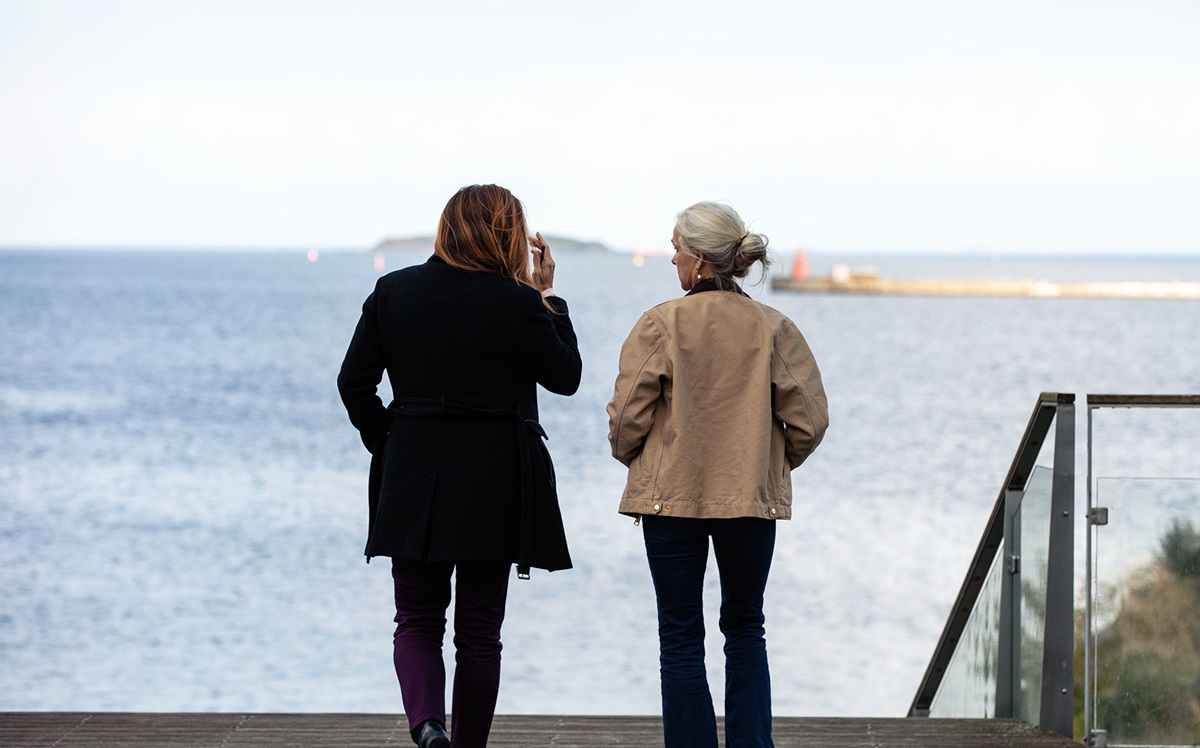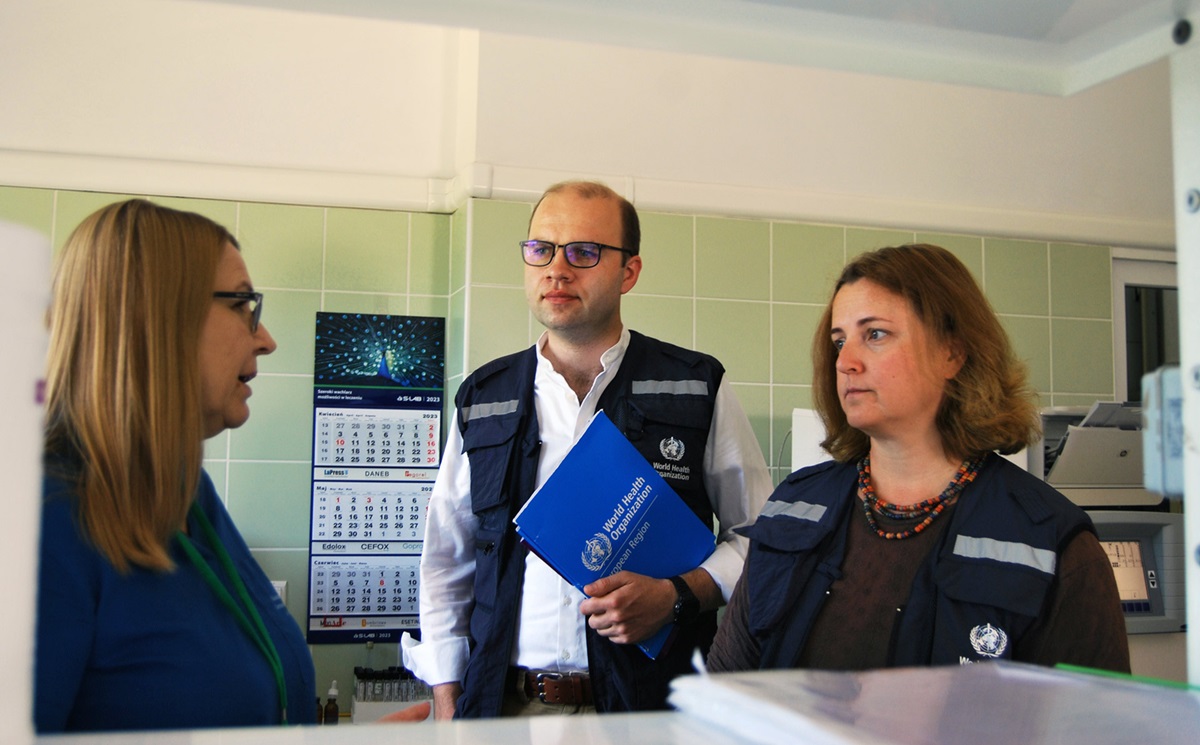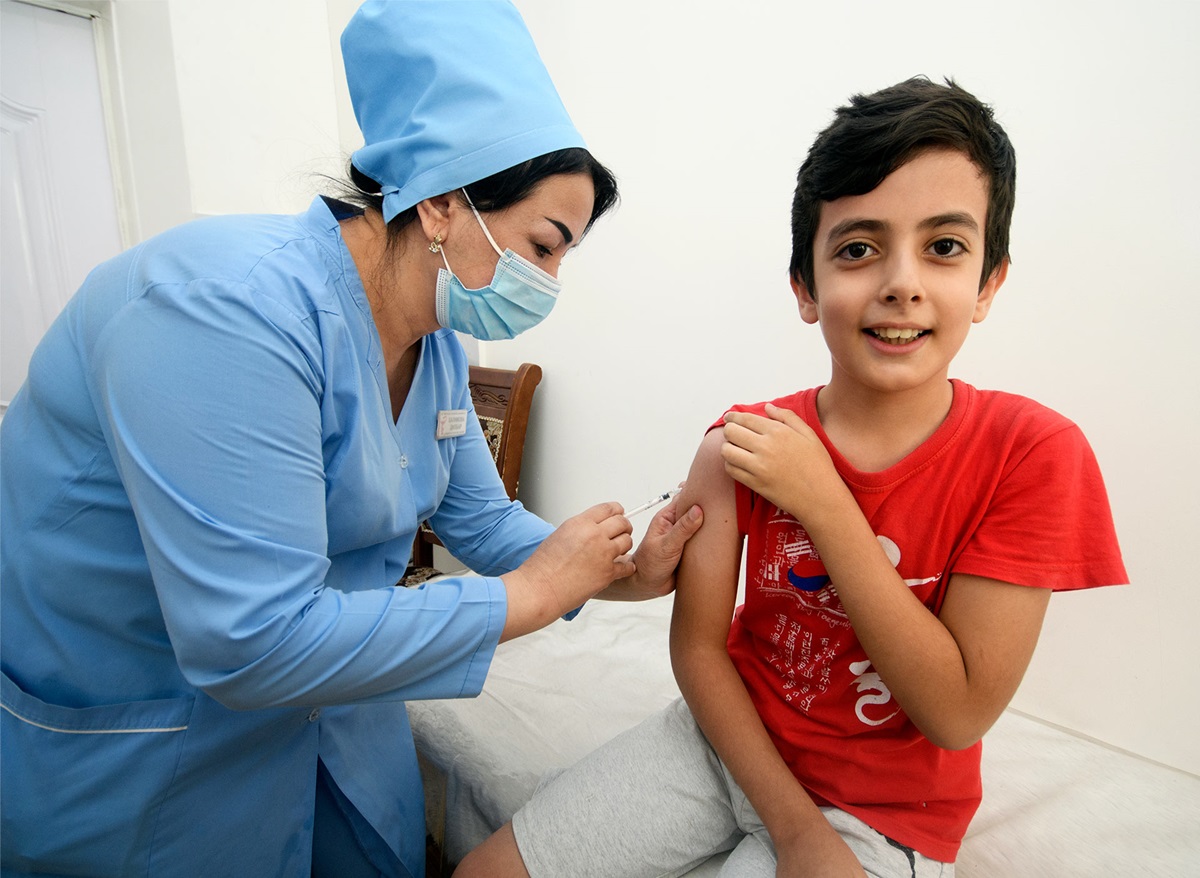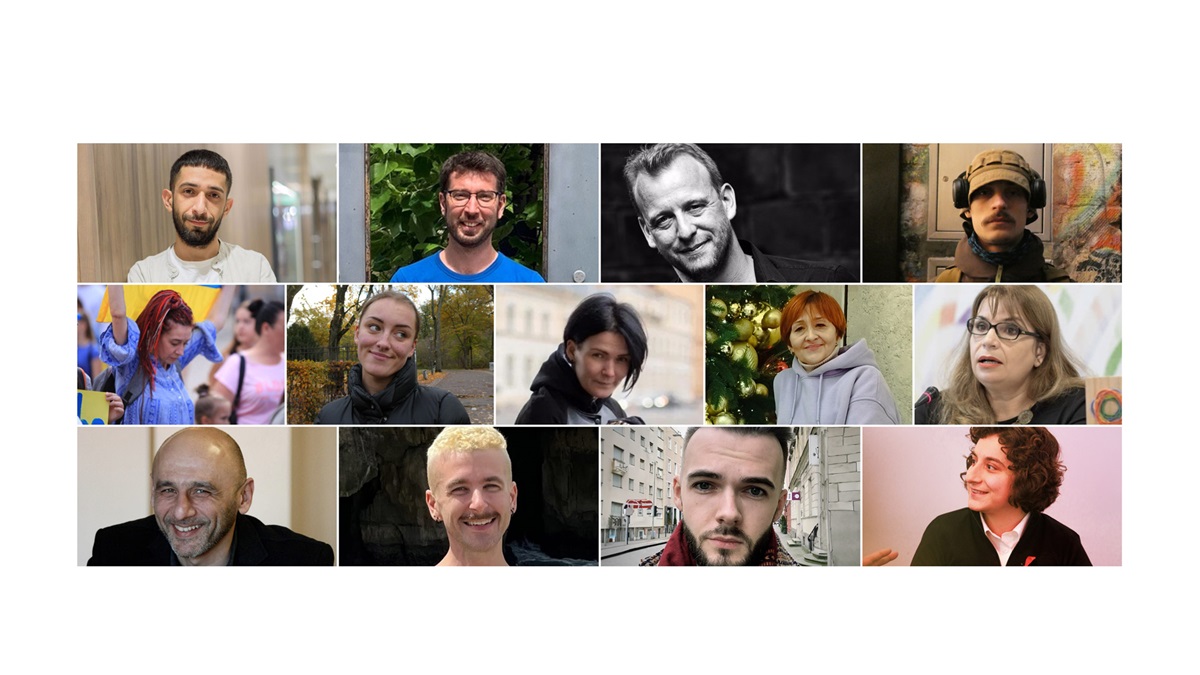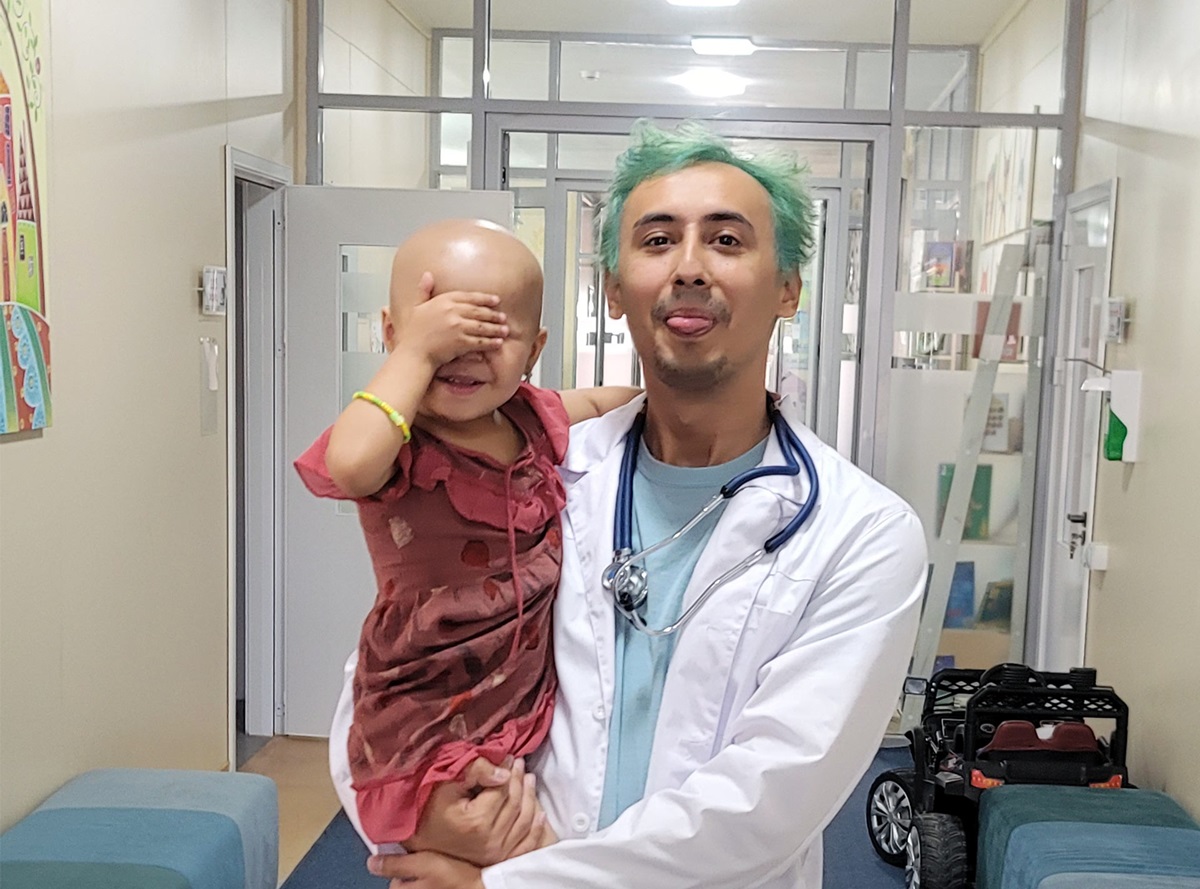No images? Click here
Shouldn’t we know this already? The link between alcohol and breast cancer
07-03-2024
Many people across the WHO European Region will celebrate 8 March, International Women’s Day, by raising a glass of an alcoholic beverage – oblivious to the fact that drinking alcohol is a major risk factor for the most common cancer among women, breast cancer. Low awareness of this link represents a significant barrier to cancer prevention and a challenge to women’s health across Europe. According to a recent study, only 21% of women across 14 European countries were aware of the connection between alcohol consumption and the risk of developing breast cancer. Awareness was even lower among men – just 10% of the men surveyed knew of this link. This fact is even more worrying given that the biological mechanisms linking alcohol to cancer are well-established and substantiated by decades of evidence from across the world.
Meet the female psychologists taking calls on an Armenian mental health hotline
World TB Day 2024
24 March 2024
World Tuberculosis (TB) Day continues with the theme “Yes! We can end TB”. TB is still one of the world’s deadliest diseases and recent years have seen a worrying increase in drug-resistant TB. World TB Day is an opportunity to renew commitment, inspire and take action to end TB. In the WHO European Region our focus continues to be on scaling up active efforts to find TB, ensuring the provision of preventative TB treatment for people at high risk, increasing access to quality-assured rapid diagnosis of TB and achieving full uptake of highly effective, safe and short treatment regimens for TB and drug-resistant TB.
TÜRKIYE AND SYRIA EARTHQUAKES
Türkiye-Syria: Protecting the overlooked and vulnerable in the wake of the
earthquakes
27-02-2024
COVID-19
Genomic surveillance boosted by Türkiye’s experience
16-02-2024
Weekly epidemiological update on COVID-19 - 16 February 2024
16-02-2024
Increasing Recognition, Research and Rehabilitation for Post COVID-19 Condition (long COVID)
WHO remains committed to learning more about long COVID and to finding ways to improve the medium- and long-term outcomes for people affected by it.
Partnering with the European Union to support deployment of COVID-19 vaccines and vaccination
The EU and WHO/Europe together provide critical assistance to Member States of the WHO European Region to ensure local readiness for safe and effective vaccination campaigns against COVID-19
UKRAINE EMERGENCY
“Tears cleanse
our souls like water cleanses our body”
04-03-2024
730 days of war in Ukraine: medevac teams provide vital relief
24-02-2024
Ukraine’s health system is a symbol of resilience
22-02-2024
3 reflections from 2 years: WHO’s response to Europe’s largest emergency
22-02-2024

22-02-2024
Updated data from 2023 are driving home the urgency of a swift and concerted response to measles outbreaks in the WHO European Region, underpinned by the need to protect everyone who remains vulnerable to the disease. Last year, more than 58 000 people in 41 of the 53 Member States in the Region – straddling Europe and central Asia – were infected with measles, resulting in thousands of hospitalizations and 10 measles-related deaths. The latest numbers from 2023 represent a rapid increase compared to the previous 3 years, and a risk for anyone in the Region who is not protected. Sustained efforts are clearly needed to prevent measles cases from continuing to rise in 2024.The high proportion (nearly half) of cases among children below 5 years of age reflects, once again, the enormous impact of the COVID-19 pandemic on health systems, including routine immunization services. This has resulted in a significant accumulation of susceptible children who have missed their routine vaccinations against measles and other vaccine-preventable diseases.
Digital tools can help improve women’s health and promote gender equality, WHO report shows
08-03-2024
Shining light on women’s contributions: celebrating their role in informal care
08-03-2024
Japan's green and blue spaces inspire the continued promotion of healthy cities in Europe
06-03-2024
Creating a climate of kindness and non-judgement on obesity and related diseases
05-03-2024

21-02-2024
My professional involvement with HIV goes back 30 years, to 1994 when I joined MSF-Belgium working on TB and HIV in Somalia. The world was a very different place; an HIV diagnosis was practically a death sentence, getting tested was a lengthy ordeal and treatment options were scarce. Much of the progress we could only dream about back then has become reality, such as highly effective treatment that reduces the HIV virus in the blood to a point where it is undetectable and cannot be transmitted to others. We have multiple means of prevention and rapid testing. From a medical point of view, HIV has simply become a chronic disease. People with HIV can live long, healthy lives. But a significant block remains. HIV stigma and discrimination are still taking a toll, preventing people from getting tested and treated.

15-02-2024
Located in the Tashkent region, the children’s hospice Taskin (“Solace” in Uzbek) represents a significant milestone in the development of vital children’s palliative care services in Uzbekistan. Knowledge and understanding of children’s palliative care are limited among health-care professionals and the public, and Dr Rustambek Norbaev, Chief Physician at Taskin, hopes to help change that. He is firmly committed to further developing his own skills as a paediatric palliative care specialist, and to building capacity in the medical community. “Two encounters set me on this path,” Dr Norbaev explains. “The first was as a young medical student when I attended Dr Ziyaev Yahyo’s lectures on hospice and palliative care. He was, and continues to be, an important mentor of mine, and I’m now in the fortunate position to be working with him. The second encounter was in 2019 when I met children’s palliative care specialists from the world-renowned St. Jude Children’s Research Hospital at WHO’s Global Initiative for Childhood Cancer national meeting in Tashkent. They inspired me to devote myself to this field.”
Kyrgyzstan receives vital support: WHO delivers emergency medical kits
04-03-2024
"I fell down, but I stood up" – The story of volleyball coach Ibragim, Turkmenistan
29-02-2024
“Don’t give up on people” – Dauren’s story of mental health rehabilitation in Kazakhstan
29-02-2024
Using the One Health approach to build resilience and health security in Kosovo*
27-02-2024
Zoya’s story – navigating reproductive health in a digital era
26-02-2024
Keeping hospitals safe in emergencies: building capacity in Lithuania and Bosnia and Herzegovina
14-02-2024
“Time to get checked! Be one step ahead of cancer!” WHO engages with media in Kyrgyzstan
14-02-2024
Eliminating cervical cancer relies on nurturing trust, country examples show
12-02-2024

EVENTS
World TB Day 2024
24 March 2024
Tenth High-level Meeting of the Small Countries Initiative: converging on small-country health priorities
11 – 12 April 2024 Limassol, Cyprus
European Immunization Week 2024
21 – 27 April 2024
Summer school: Systems thinking and innovation for the prevention of noncommunicable diseases and a healthy ageing population in the WHO European Region
16 – 19 July 2024, Nice, France
15th conference of the European network for the promotion of health-enhancing physical activity (HEPA Europe)
19 – 21 August 2024, Dublin, Ireland



